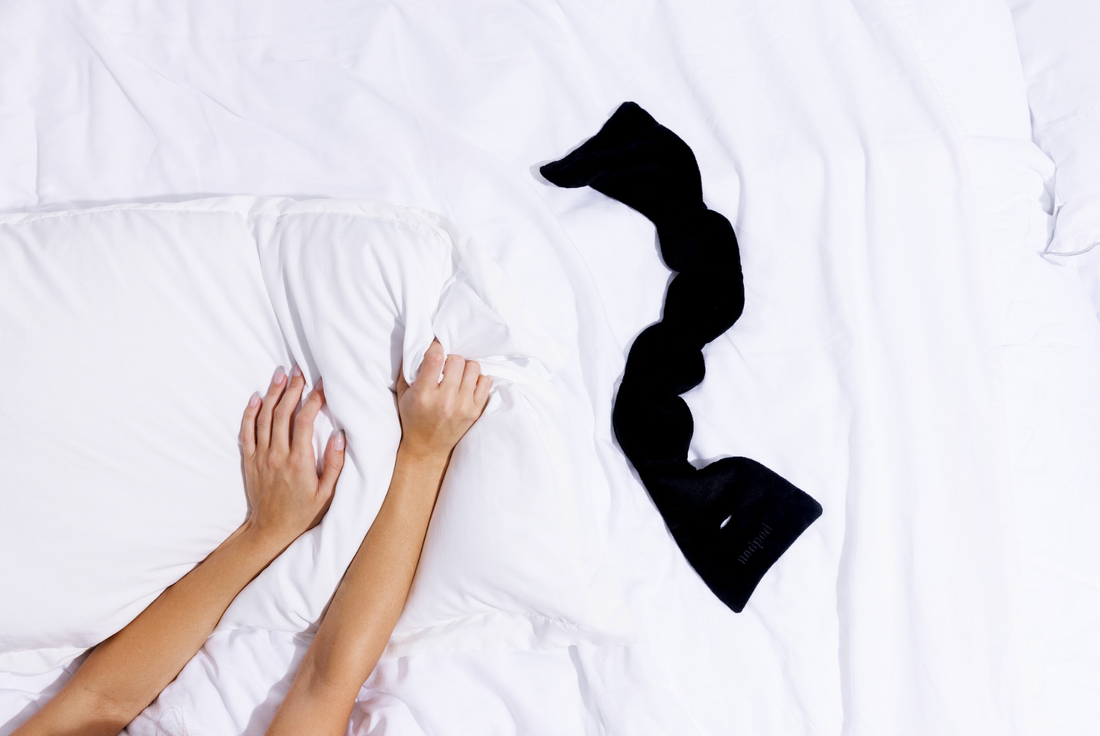
Is It Better to Sleep in the Dark or With a Nightlight?
Share
Thanks to my grandfather telling me ghost stories of what he has seen in his own home, I slept with the hall light on for an embarrassingly long time whenever I would spend the night at my granddparent’s house. While this was comforting in the sense that I felt immune to the haunts that supposedly roamed the halls, the bright light was not conducive to sound sleep. While the blame for that could also be placed on a fear of the dark or anxiety surrounding falling asleep, research suggests that ambient light does not bode well for restorative sleep.
What Does Light Do to Our Sleep?
Many sleep with a nightlight or ambient light in their bedroom for reasons from being able to see where they’re going if they need a midnight bathroom break or for an added sense of comfort from sheer darkness. When it comes to how well you sleep with this ambient light, however, light exposure has been linked to a decreased ability to reach deep sleep. Deep sleep is the stage in the sleep cycle where growth and development occurs such as the growth and repair of muscles and bones.
Light interference has been shown to reduce melatonin production as melatonin is triggered by darkness. Additionally, even small amounts of light have been shown to activate the autonomic nervous system. This system is in place to calm the body to decrease heart rate and respiration in times of distress, but the influence of light on the autonomic nervous system has shown to be enough to trigger it to become more alert. While its effect on the nervous system was so drastic that it simulated a brain that is awake, it is still a phenomenon that should be avoided when trying to get sound sleep.
What if I Can’t Sleep in the Dark?
Whether you have a child with a fear of the dark or if you yourself have become accustomed to sleeping with some source of light, hope is not lost. While blue light, the kind that emitted from our devices such as phones, tablets, and computers, is known to be mentally stimulating, red light has been shown to help promote the production of melatonin, not suppress it. To look at it on an evolutionary level, the main source of blue light is the sun, so exposure to blue light suppresses melatonin production as the brain thinks it is time to be awake and alert. Conversely, red light replaces the blue light emissions as the day turns into the evening. The light emitted from campfires has a similar effect as well. If you find yourself in a position where you cannot seem to sleep without a source of light, opt for a red light as opposed to exposing yourself to more counterproductive blue light.
Why Sleep in Total Darkness?
As mentioned before, darkness helps trigger melatonin production making it easier to fall asleep. Sleeping in a dark room has a number of benefits not only to your sleep quality but your overall health including, but not limited to, promoting a faster metabolism, lessening the chances of developing type II diabetes, and enhancing your mental focus by allowing you to complete your sleep cycles. In addition to general health benefits, sleeping in the dark can offer cosmetic benefits in the form of preventing skin aging. Sleeping in the dark helps cellular regeneration which can help keep your skin looking youthful.
Sleeping in total darkness can be easier said than done, however, especially if you need to go to bed especially early. Tools like blackout curtains can be incredibly useful if you’re going to bed while it’s still light outside, but they do little to combat light inside your own room. If you find yourself contending with ambient light from your bedside clock or another device, try the Nodpod weighted sleep mask that contours to your face in order to block out unwanted light.
Key Takeaways
When it comes to determining whether a little bit of light or total darkness is preferable for falling asleep at night, the signs point to darkness. Sleeping in complete darkness prevents the disruptions that ambient can cause such as preventing you from entering deep sleep. While some of us swear by sleeping in an all encompassing darkness, that simply isn’t feasible for some of us who dislike the dark or children who have a fear of it. In cases such as these, utilizing red light night lights is helpful as the red light helps encourage the production of melatonin as opposed to blue light that inhibits its production. Whether you prefer darkness or a little bit of light, there are methods for you to achieve an optimal sleeping environment without compromising your preferences.